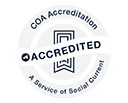How to Tell if a Child is Being Abused
125,000 children are abused or neglected each year in Illinois, and one in five children will be abused before they turn 18. When you call the Child Abuse Hotline at 800-25-ABUSE (800-252-2873), you are joining the tens of thousands of every day Illinoisans who make the socially-responsible choice each year to keep kids safe and get families the help they need, before it is too late.
Over the last four years, DCFS received more than one million calls to our Child Abuse Hotline, offering and coordinating services wherever needed to help children remain in their homes safely whenever possible. Unfortunately, as many as 100,000 abused and neglected children go unreported to DCFS each year. By making the call, you can help make sure every child gets the help they need.
What are child abuse and neglect?
Child abuse is the mistreatment of a child under the age of 18 by:
- A parent or their romantic partner.
- An immediate relative or someone living in their home.
- A caretaker such as a babysitter or daycare worker.
- any person responsible for the child's welfare, such as a health care provider, educator, coach or youth program volunteer.
The mistreatment can either result in injury or put the child at serious risk of injury. Child abuse can be physical (i.e. bruises or broken bones), sexual (i.e. fondling or incest), or mental (emotional injury or psychological illness).
Neglect is the failure of a parent or caretaker to meet "minimal parenting" standards for providing adequate supervision, food, clothing, medical care, shelter or other basic needs.
What are some of the warning signs of abuse or neglect?
Unsure if a child's injuries are the result of mistreatment or the mistreatment of a child is abuse or neglect that places the child at risk of harm? Ask yourself some simple questions:
- If I witnessed a child being treated this way by a babysitter, teacher or other caregiver, rather than a parent or relative, would I want someone to stop it?
- If a babysitter, teacher or other caregiver were treating my child this way, would I want someone to stop it?
- If I was that child, would I want someone to help me?
- What do your instincts tell you is the right thing to do, even if it is difficult?
Note: Any person who knowingly transmits a false report to the department commits the offense of disorderly conduct under subsection (a)(7) of Section 26-1 of the Criminal Code of 2012. A violation of this subsection is a Class 4 felony." (Source: P.A. 97-189, eff. 7-22-11; 97-1150, eff. 1-25-13.)


 312-814-6800
312-814-6800